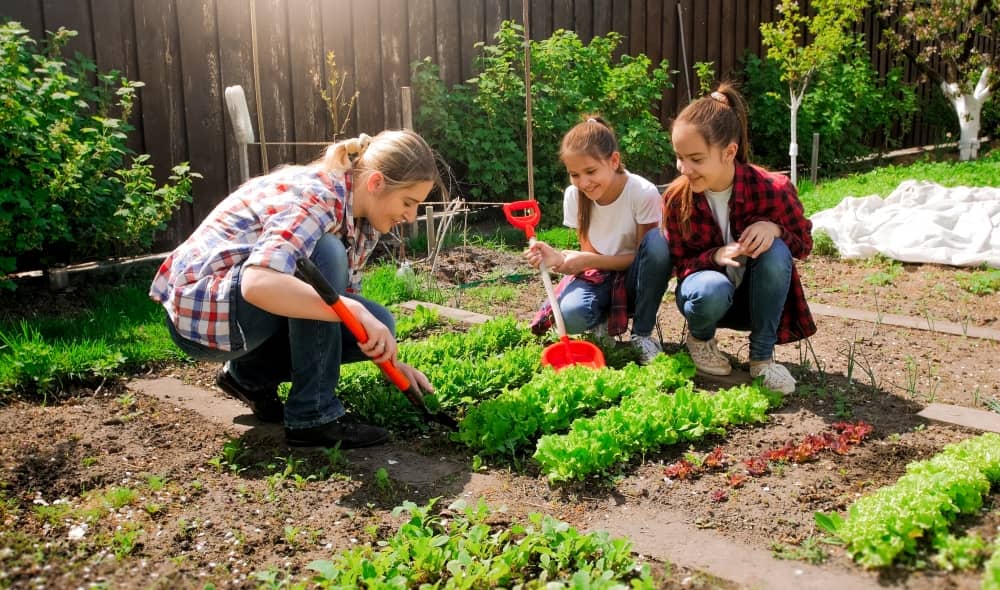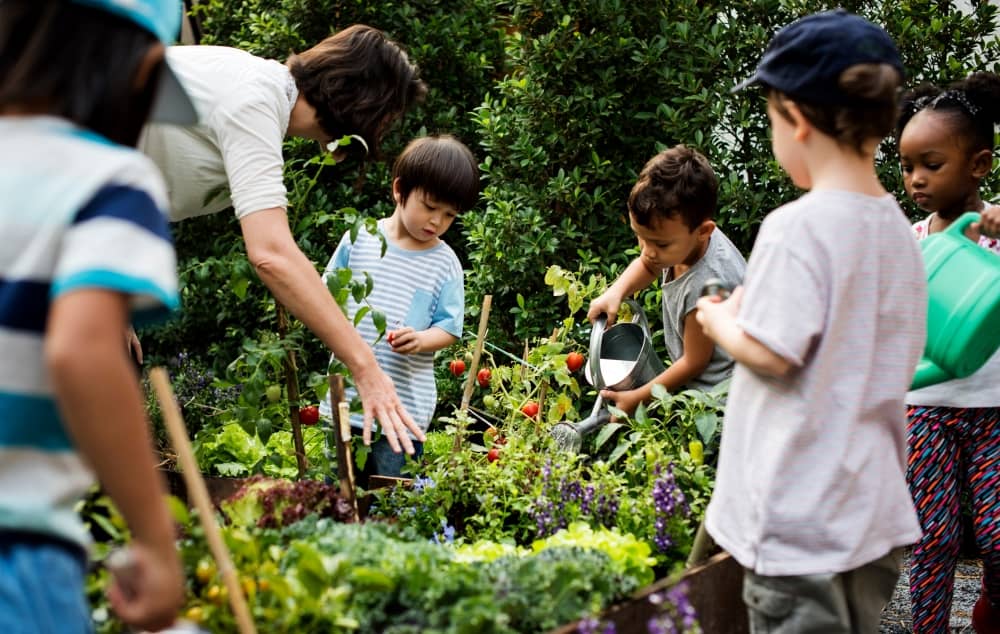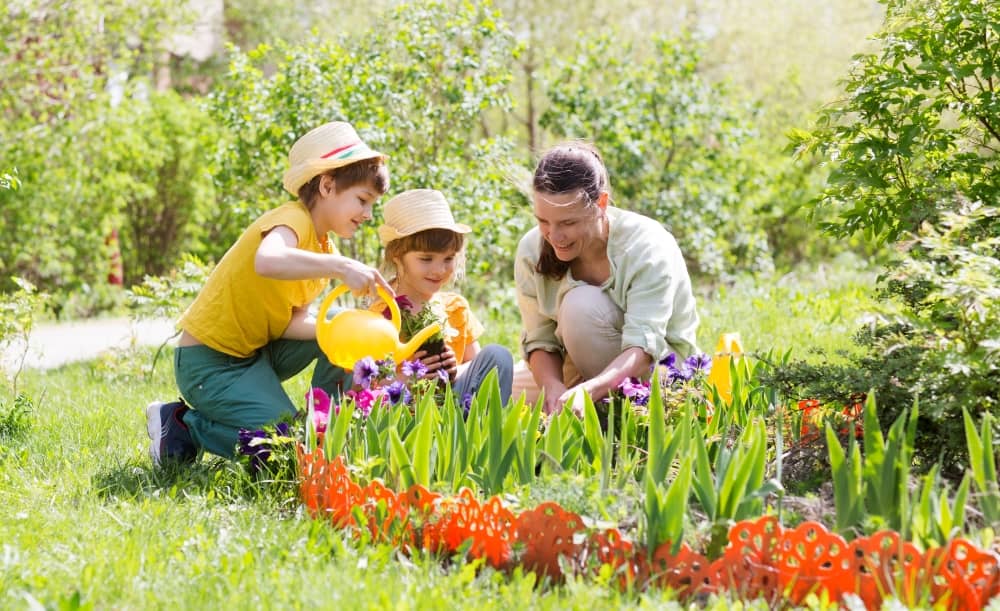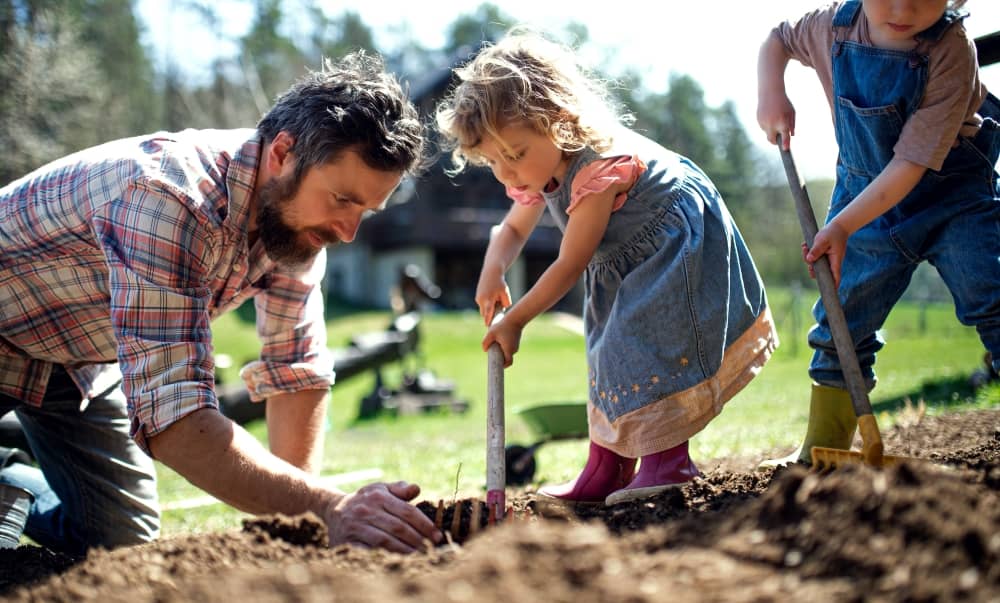Fun Garden Ideas and Activities for Kids
With the increased attention to climate change, there is a renewed interest in gardening, especially growing your food. A popular idea for adults, gardening for kids is also very much on trend.

Aside from an outdoor activity that does not involve screen time, kids’ gardening provides valuable learning experiences and other benefits, like:
- Understanding cause and effect
- Seeing that they can positively influence their environment
- Nutrition
- A love of nature
- The responsibility of caring for something
- The self-confidence that comes from reaching goals
- Learning about many forms of science, including weather, plants, animals, the growth cycle, and the life cycle
- Cooperation and teamwork if they are working in the garden with siblings, classmates, or friends
Fun Garden Ideas for Kids
To cultivate a child’s interest in gardening, make sure to keep things simple and age-appropriate. The fastest way to get a child to lose interest is by making the activity too difficult or a chore. Some other ways to spark interest in gardening include:
- Add fun features to your garden. Make a scarecrow with your kids or make a teepee out of bean plants; water features are a huge hit with kids of all ages
- Allow kids to make or decorate signs to mark the various plants
- Encourage kids to dig in the dirt
- Make garden time as relaxing as possible so everyone enjoys their time in the garden
- Allow older children to help design the garden and give younger children their own space to cultivate
- Create a worm farm
- Take a trip to a community garden, botanical garden, or a farm
Garden Activities for Kids
There is never a shortage of work to be done in the garden. Make the activities feel fun and not drudgery, and the children will respond positively.
- Digging the dirt
- Planting seeds or small plants
- Watering
- Weeding
- Feeding the worms
- Picking flowers to make bouquets to give to neighbours or friends
- Harvesting fruits and vegetables when they are ready
- Help clean and prepare vegetables in salads or soups
- Deadhead flowers
- Create a garden journal with seeds, dried leaves, and pictures to help remember the garden when the season is complete
Child Safety in the Garden
Although you want the garden to be a pleasant and relaxed environment, you will want safety to be a priority.
- Dress the kids in appropriate clothing for the weather
- Put up shade cloth or umbrellas in very hot temperatures
- Always use a good sunscreen
- Keep sprays and fertilizers out of reach
- Secure gates and fences
- Do not leave pails of water unattended
- Have a small first aid kit on hand to clean scrapes or bandage cuts
- Store tools and equipment safely
- Always use the correct size tools
- Stay hydrated
- Ensure children respect any garden creatures and are aware these are not toys
- Do not leave children unattended in the garden
- Garden organically and avoid chemicals
Choosing What to Plant
Plant selection is an essential task for any gardener, especially younger ones. Before deciding on your plants, allow kids to do a little age-appropriate research to help them learn about what they will grow and which plants are appropriate for your area. Additionally, you can stimulate your child’s senses based on what you raise.
- Bright colour flowers or vegetables that are brightly coloured when ripe
- Plants with pleasing fragrances
- Unique textures
- Plants that are tasty straight from the garden
Remember, the younger the child, the less patience they are likely to have with the process. Be sure to plant a few things with short growing times.
Boost Your Kid’s Gardening Success with Soil Cultivation
1. Test for Nutrients and PH
Your soil should be tested before beginning your gardening adventure. This will make preparing your soil for gardening easier because you will know what is lacking and what is at the right level.
Phosphorous and potassium are two nutrients that tell you the soil’s PH level. A good PH level for fruit and vegetable-producing plants is between 6.0 and 7.0. This is vital because the level of PH controls the availability of soil nutrients to plants.
2. Test for Lead and Other Contaminants
Testing your soil for contaminants like lead and other heavy metals is vital to ensure children do not ingest amounts of these. Your soil should test 100 ppm or lower. This level is safe for children to garden in and eat food produced in the garden. Some labs can test your soil for you and ensure you and others can safely eat or garden in the area.
3. Cultivate the Soil
After you have completed the first two steps, it is time to get your hands dirty, literally. Here are the steps to easily cultivate the soil for your garden.
- A month before planting, you should till the soil of a new garden.
- If you are working in an established garden, do not till the soil, as it disrupts the ecosystem that is at work.
- Pull weeds by hand
- Add a six to seven-cm layer of organic matter like compost to the soil
- Add organic or manufactured fertilizer according to the manufacturer’s instructions.
About Raised Beds and Container Gardens
For raised beds, you will want soil from an outside source, like a soil supplier or landscaping company. Speak with the professionals there regarding the best soils for what you want to grow.
For containers, you will want to buy potting mix. Other soils are too dense and will prevent proper drainage. Some soils also have weeds, seeds, or microorganisms that can impede growth in a small space. Potting soils are sterilized to kill these threats to your plants.
If your kids are keen on the idea of gardening but you do not have suitable soil, we can help. Contact Bibra Lake Soils to find out what we can offer to get your garden started. Remember, the idea of the project is to have fun while your children learn to value the environment. So, if you have a small space, make the most of it and enjoy connecting with your kids.





